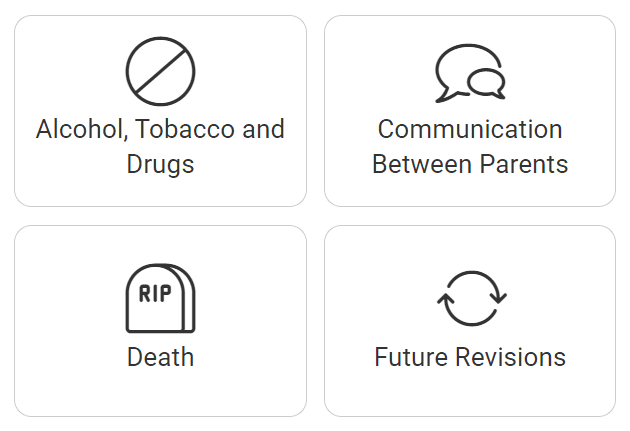Does Guardianship Override Parental Rights?
When a child has a legal guardian, the guardian's role differs from the parent's role. The parent should understand how the guardian serves the child's needs. Teachers, doctors, extended family and babysitters may also need to know what the guardian can do.
Guardianship versus parental rights
Guardians and parents have their own roles. The fact that the child has a guardian does not mean the parent has no rights.
Parental rights usually include the option to spend time with the child, as well as the authority to make major decisions and sign contracts for the child. Having a guardian does not generally change this.
After a guardian is appointed, the parent may continue to have custody. Even when the parent does not have custody, they may have a court order that allows them to visit their child.
In some circumstances, a court may suspend or terminate a parent's rights. However, that is separate from appointing a guardian.
Legal guardian versus biological parent: Who has custody?
Guardianship and custody are distinct concepts. Usually, a parent continues to have custody even after a legal guardian is appointed. This is true whether the parent is biological or adoptive. The guardian may provide care for the child despite not having custody.
It is possible that a judge will later award custody to the guardian. This would be a new request and a separate legal process. Probate courts determine guardianship. Family courts determine custody.
Guardianship and parental visitation
Parents may have the right to visit their child while the child is living with the guardian. The details of a guardianship will depend on family circumstances.
Does the parent choose the guardian?
When a parent needs someone else to provide care for their child, they may consider a guardian. Appointing a guardian can be a responsible choice.
One way to tell the court in advance whom you want as guardian is to put this information in your parenting plan. This way your wishes are in a legal document signed by both parents, and the court can reference it if you die or become incapacitated.
If you want to appoint a guardian while you're still alive, you can instead go to your court for the appropriate forms.
When a parent chooses to appoint a guardian, they can ask the court at any time to revoke the guardianship. They can also appoint a new guardian.
If the child's well-being is at risk, the court may appoint a guardian against the parents' wishes. The court order establishes the details.
A guardianship is temporary
Parenthood, whether biological or adoptive, is a permanent status. By contrast, guardianship is temporary. This is another way in which guardianship of a minor child is different from parenthood.
A court order begins and ends the guardianship. The order may set the guardianship to expire on a certain date. Otherwise, the order is valid until a judge updates it.
If a guardian cannot or will not continue to serve in their role, they must go to court to request a change. Sometimes the parent, too, has the right to bring an end to the guardianship. If the court approves, the guardianship can end.
Can the legal guardian parent the child, too?
Legally, a guardian is not a parent. As such, the guardian's rights and responsibilities are not called parental rights. A guardian is a designated nonparent who protects the child's interests.
The parent may keep their right to make long-term, major decisions. A court order specifies the unique details of each guardianship.
Despite not being a parent, the guardian often plays roles that are typical of parents. For example, a guardian may provide housing, oversee homework and take the child to the doctor. When considering the child's daily care, the guardian may have the right to override the parents' wishes.
Does the guardian pay for the child's care?
Sometimes, a parent pays child support to the guardian. A child may also have their own income through government support or an inheritance. The guardian may be allowed to use this money for the child's needs if they keep track of the spending.
In other situations, the guardian alone pays for the child's needs. Just because a guardian spends money on the child does not mean they have more rights than the parent.
Does guardianship lead to adoption?
On its own, guardianship does not lead to adoption. In some circumstances, however, a guardian may apply to adopt the child. This is a separate process. Guardianship is not the same as adoption.
As part of the adoption process, a judge examines the biological parents' statuses. Their parental rights (if any) are terminated when someone else adopts their child.
When the adoption is finalized, the guardian becomes the parent. This is a permanent status. Anyone who becomes an adoptive parent gains parental rights.
How to name a guardian in a Custody X Change parenting plan
Naming a guardian in your parenting plan is easy with the Custody X Change co-parenting app.
Click the parenting plan tab, and select the category death.

You can customize this to fit your situation with Custody X Change.
Then fill in the name of the person you'd like the court to appoint as your child's guardian if that becomes necessary.

You can customize this to fit your situation with Custody X Change.
Print the plan, and sign it with the other parent. Then turn it in to your court to settle your custody case.
